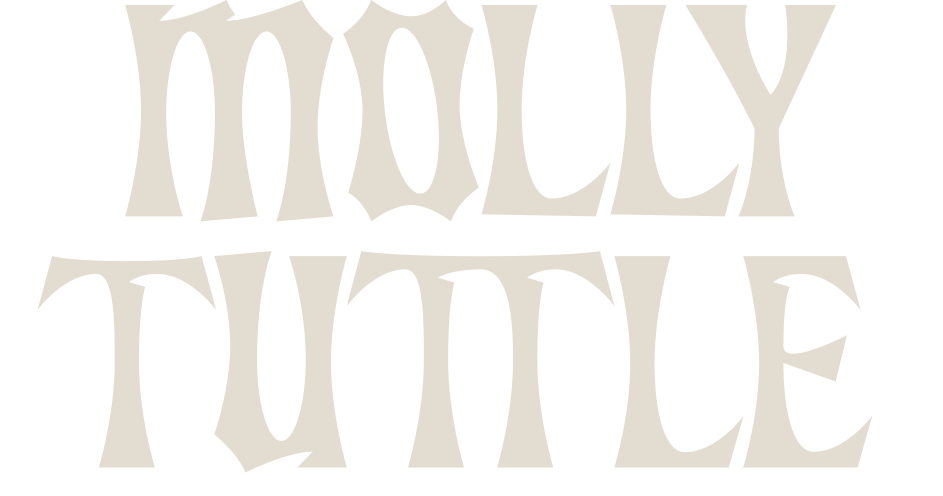About
On her new album, City of Gold, Molly Tuttle, joined by her band Golden Highway, shares a batch of spellbinding stories that span time and place: wildly colorful fables populated by gold miners and fortune tellers, true-to-life tales of love and loss and a fast-changing world, and a reimagining of Alice in Wonderland set in the backwoods of Kentucky, to name just a few. The follow-up to 2022’s Crooked Tree—a widely lauded LP that won the Grammy Award for Best Bluegrass Album, with Tuttle earning a Best New Artist nomination—the Northern California-raised musician’s fourth full-length album brings those narratives to a resplendent form of bluegrass rooted in her virtuosic guitar playing. Like Crooked Tree, whose accolades also include an International Folk Music Award for Album of the Year, City of Gold, is co-produced with bluegrass legend Jerry Douglas, showcasing the extraordinary musicianship that made Tuttle the first woman ever named Guitar Player of the Year by the International Bluegrass Music Association. But this time around, the Nashville-based singer/songwriter/multi-instrumentalist chose to record with her live band for the first time—a move that lends a potent new energy to her exquisitely crafted sound. “When I was a kid we took a field trip to Coloma, California, to learn about the gold rush,” says Tuttle in revealing the inspiration behind City of Gold. “I’ll never forget the dusty hills and the
grizzled old miner who showed us the gold nugget around his neck—just like gold fever, music has always captivated me and driven me to great lengths to explore its depths.” Noting that City of Gold “celebrates the music of my heart, the land where I grew up, and the stories I heard alongthe way,” Tuttle found her band essential to every aspect of the LP. “I made this record with Golden Highway after playing over 100 shows across the country last year,” says Tuttle, whose bandmates include Bronwyn Keith-Hynes (fiddle, vocals), Dominick Leslie (mandolin), Kyle Tuttle (banjo, vocals), and Shelby Means (bass, vocals). “On this album we chart some new territory along with some old familiar ground; the songs span from Yosemite up to the Gold Country and out beyond the mountains. That visit to Coloma (site of California’s first gold strike) is where I first heard about El Dorado, the city of gold. Playing music can take you to a place that is just as precious.City of Gold, recorded at Sound Emporium in Nashville, opens on the breakneck storytelling anddizzyingly intricate arrangements of “El Dorado,” a track that took shape after Tuttle shared the story of her Coloma field trip with Old Crow Medicine Show’s Ketch Secor (her co-writer for each track on the album). “I was telling Ketch about the guide with the big gold nugget hanging from his necklace, and the whole song came together from that first line: ‘I’m Gold Rush Kate from the Golden State/With a nugget around my neck,” Tuttle recalls. While “El Dorado” abounds in larger-than-life characters, the wistful but radiant “Yosemite” finds Dave Matthews joining Tuttle for an intimate duet documenting the dissolution of a relationship. “A couple yearsago my ex-partner and I drove across the country to visit my family, then broke up in the car on the way back to Nashville,” she explains. “It was fun to write a road-trip-from-hell kind of song, and singing it with Dave Matthews was my absolute dream collaboration.” And on “Next Rodeo,” Keith-Hynes’s luminous fiddle melodies intensify the longing within Tuttle’s weary yet poetic account of life on the road (“Well, it’s 200 towns of one-night stands/Tearing up the road with a five-piece band/Some days are diamonds some days are rust/The towns of tomorrow are yesterday’s dust”).
Demonstrating Tuttle’s musical range, City of Gold encompasses everything from the sprawling roots-rock of “When My Race Is Run,” a gorgeously moody piece she describes as “a love song about death, and wanting someone to be the person there waiting for you when you cross over,” to the spooky folk of “Stranger Things,” a darkly charged reverie featuring Douglas’s masterful work on Dobro. Tuttle also showcases her beguiling vocals and lavishly detailed songwriting with such matters as marijuana legalization on “Down Home Dispensary,” a gloriously fun track spiked with unforgettable lines like “Legalize the southland and roll us a number” and gentrification’s corrosive effect on the character of once-vibrant neighborhoods on the harmony-fueled and freewheeling “Where Did All the Wild Things Go.” Throughout City of Gold, Tuttle and Golden Highway deliver the kind of high-energy and full-hearted songs primed for a joyously unified singing-along, an element that partly inspired the title to the album. “To me the words ‘City of Gold’ represent the community that the band and I have built with the people we get to play music for, and how it’s become like its own little world,” says Tuttle. “I wanted the album to celebrate that sense of community, because one of the things I love most about this music is how so much of the audience plays music as well. Theyinspire me to keep writing songs in the hopes that people will sing along and maybe play those songs with their friends—almost like we’re all a part of one great big family.”
“A vibrant blend of bluegrass with flashes of Old West, anchored by Tuttle’s earthy-yet-angelic vocal and the entire group’s ace musicianship”
“These tracks highlight Tuttle’s nuanced vocal skill and her great sense of melody… one of the year’s best albums”
“One of the world’s best guitar players”


